
by Javier Gómez Rodríguez | Oct 31, 2022 | News
Last year we renamed Friedrich’s Newsletter as simply The Newsletter. That seemed to be appropriate, as it was becoming a more impersonal co-production. However, some readers found the change was not quite suitable and suggested we should revert to the old title. After a brief exchange about it, we decided that it was a good idea, since the newsletter owes its impetus and existence to Friedrich’s untiring commitment to and support for this publication as a medium of communication across the K-world.
In the EDUCATION section we take an extensive look at a recent book authored by Meenakshi Thapan, current Director of the Rishi Valley Education Centre, where she looks at K as an educator for peace. We then include a report by Ivone Apolinário on the educational project she has been spearheading in northern Portugal. This initiative is very promising, as it opens the way for other similar projects to develop in continental Europe, where the hope of establishing K schools has thus far remained an impossible dream.
In THE TEACHER AND THE TEACHINGS, we take a retrospective look at K’s early teachings through the lens of Rom Landau’s God is My Adventure (1935), where the author gives a rather sympathetic and comprehensive view of their development up to that point. While the teachings may not have changed in essence, it took a while before they could be adequately and fully expressed. Although, one suspects, such a thing might be well-nigh impossible, since we are talking about a truth that is inherently ineffable. The question of time is very central to the teachings, but it has not been probed into very much. So we include an article by our old friend Hanns-Peter Trautvetter on this subject as a first invitation to further exploration.
In BOHMIAN PSYCHOLOGY we include an extensive article by David Moody on this topic. This is the title of a much longer piece that Moody kindly agreed to shorten for our publication. In it the author presents a succinct summary of some of the key aspects of Bohm’s understanding of the current structure and functioning of consciousness and suggests that Bohm’s insights, as recorded in the transcripts of his Ojai seminars, deserve a much more extensive and in-depth study.
CONSCIOUSNESS IN THE DIGIAL AGE was a section we introduced last year to accommodate several contributions looking into this area of general concern. This time around we only include a reference to Lyn Lesch’s new book, Towards a Holistic Intelligence, where he proposes that the answer to the deleterious effects of digital technology may lie in the awakening of a deeper quality of intelligence that goes beyond memory and thought.
In the READERS CORNER we include an update from Brazil by our good old friend Marcelo Fiorini, who has been deeply involved in conservation work in the Amazon. This great rain forest is increasingly under threat, as are its native species and inhabitants, with the consequent urgency to protect it, which is best left to the indigenous people who have been its custodians for generations. We also share Michael Krohnen’s ‘Ode to Krishnaji’, in which he expresses his lifelong love for the teacher.
I would like to take this opportunity to invite all of you who are interested in K and the exploration of life in the light of the teachings to share your reflections, investigations and discoveries. This publication is an open forum for that kind of exchange, and it depends for its content on the worldwide network of all those who partake of this same interest. So do feel free to send us your contributions to the ongoing conversation.
May the action of intelligence light the way to harmony, cooperation and peace.
Javier Gómez Rodríguez
Lelystad, October 2022

by master | May 8, 2025 | News, The Blog, The Course
Dear Friends,
For the last two or three years a group of us have been holding monthly meetings online to explore various aspects of K’s teachings. This group was an extension of the K online course. Some participants were keen to continue the exploration, and we managed to find the time and the energy to do so. These explorations have been wide-ranging and deep, bringing about a heartfelt sense of sensitive and affectionate sharing and concern. Over these past six months we took up the study of the dialogues in the series of Reality, Actuality and Truth. That is the title I gave it, since those are the three main themes that K and Bohm set out to discuss back in 1975. Some of these conversations appeared in Truth and Actuality (1977) and The Limits of Thought (1999), but the set was never published either together or in its entirety. So that is a pending project, as far as I’m concerned. Since there are a total of twelve dialogues, we chose to cover two of them per session. I took the trouble of verifying the transcripts which, in spite of having been deposited as final in the archives, contained some errors. Then I summarized the contents of each chapter in PP slides and finally reworked these summaries in a cover letter to the participants in which I tried my best to trace out their internal coherence. The very last chapter was an attempt by Bohm to trace the core thread of the whole series and one of the themes that stood out for us was the question of action and, more specifically, of revolution.[1]
At one point in the dialogue K mentions the Latin American revolutionaries who, having become aware of the ongoing imperialist exploitation and the pervasive corruption of society, felt very strongly that the whole thing must be changed. K’s teachings are permeated with this same revolutionary spirit, so he posed the logical question as to whether he and the guerrilleros could have sat down together and communicated about the true meaning of revolutionary action. If the revolutionaries were totally identified with their ideology, that conversation might prove impossible, but supposing that they were still able to listen, what might K have said to people like Fidel Castro and Che Guevara? One could imagine that, given K’s emphasis on the inner revolution in consciousness and his critique of the Marxist approach to human transformation, namely by changing the socioeconomic circumstances, he might have recommended that they put down their AK-47s and take up meditation. The guerrilleros might have replied that there was no time for navel gazing, for sitting around observing their thoughts and feelings and learning to observe without the observer. The situation was too urgent, and it demanded immediate action. Wasn’t he also saying that action is always now? To which K might have responded that indeed it is, adding that such action means not from an idea or conclusion, which are the past. He would most likely have insisted that without a revolution in consciousness, all other revolutions are a mere turn of the wheel.
“To bring about peace in the world, to stop all wars, there must be a revolution in the individual, in you and me. Economic revolution without this inward revolution is meaningless, for hunger is the result of the maladjustment of economic conditions produced by our psychological states – greed, envy, ill-will and possessiveness. To put an end to sorrow, to hunger, to war, there must be a psychological revolution and few of us are willing to face that. We will discuss peace, plan legislation, create new leagues, the United Nations and so on and on; but we will not win peace because we will not give up our position, our authority, our money, our properties, our stupid lives. To rely on others is utterly futile; others cannot bring us peace. No leader is going to give us peace, no government, no army, no country. What will bring peace is inward transformation which will lead to outward action. Inward transformation is not isolation, is not a withdrawal from outward action. On the contrary, there can be right action only when there is right thinking and there is no right thinking when there is no self-knowledge. Without knowing yourself, there is no peace.”
The First and Last Freedom, pp. 184-185
K’s argument seems simple enough: what is happening outwardly in society, with its social and economic injustice, class struggles and war, is the result of our inner states of greed, envy, possessiveness and ill will; therefore, unless there is a psychological revolution, all our legal and sociopolitical measures will have no effect, for we will not give up our wealth and power, what K calls ‘our stupid lives’. Moreover, no government, army, country or leader will bring us peace. Only inward transformation, which is not isolation or withdrawal from outward action, will. Action follows from right thinking and there is no right thinking without self-knowledge, which is the foundation of peace. The revolutionaries might accept that indeed the outward structure of society goes together with our egotistic mindset and that without changing the latter, the former would be at best incomplete and forever on the brink of reverting to the old bourgeois capitalist and exploitative mode. But the fact remains that people won’t give up their possessions, money and status willingly. It might be stupid and utterly irresponsible to live that way, especially in view of the injustice and cruelty involved, but those very things are the pillars of power and as they will not renounce them voluntarily, they must be obliged to do so by force. Of course there is no right action without right thinking and, they might concede, self-knowledge is of fundamental importance in establishing individual integrity and the moral foundations of society. But as this focus on self-knowledge is not a withdrawal from outward action, then that action, self-awareness and transformation must happen simultaneously. Faced with such a prospect, the revolutionaries might wonder whether K wasn’t asking too much of mere mortals like themselves. At which point K might issue another challenge.
[1] This is the dialogue dated 11 October 1975.
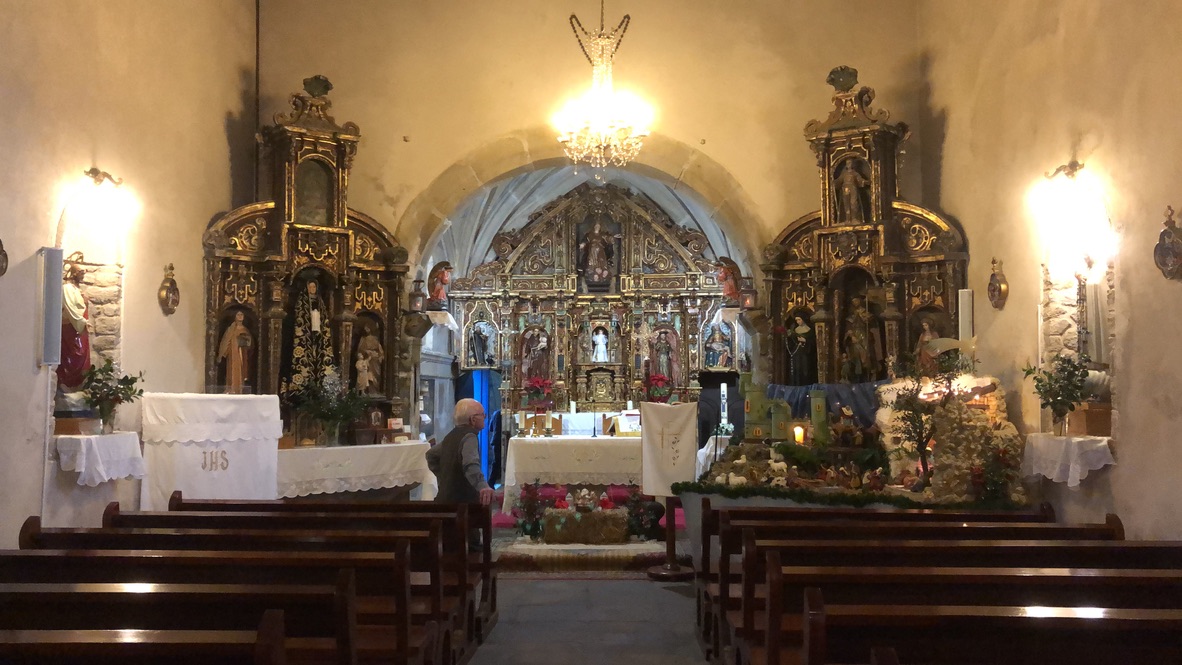
“For me revolution is synonymous with religion. I do not mean by the word ‘revolution’ the immediate economic or social changes, but I mean a revolution in consciousness itself. All other forms of revolution, whether communist, capitalist or what you will, are merely reactionary. A revolution in the mind, which means the complete destruction of what has been so that the mind is capable of seeing what is true without distortion, without illusion – that is the way of religion. I think the real, the true religious mind does exist, can exist. I think if one has gone into it very deeply one can discover such a mind for oneself. A mind that has broken down, destroyed all the barriers, all the lies which society, religion, dogma, belief have imposed upon it, and gone beyond to discover what is true, is the true religious mind.”
The Collected Works, Vol. 12, pp. 223-224
While the statement that revolution is synonymous with religion would clash with Marxist orthodoxy, Latin American revolutionary movements were often rooted in Liberation Theology, which united the Communists and the Catholics in the common pursuit of social justice. So maybe the guerrilleros might not fundamentally disagree, though they would have their reservations as to what K might be meaning by ‘religion’. His emphasis, however, was not on any form of tradition, belief and authority, but on what he called ‘the religious mind’. For him this religious mind is the only revolutionary mind, not the mind of the left, right or centre, which are all fragments, therefore not revolutionary at all. The religious mind deals with the totality, not with fragments, which creates the foundation of cooperation, social order and responsibility. Such a mind implies the total destruction of the past so that it is able to see what is true without distortion or illusion. And he insisted that it exists and can be discovered when one has dissolved all the lies that society and organized religion have imposed on it. To the devotees of historical dialectical materialism this might sound positively mystical and esoteric. And if that was the only way, then it would certainly call for a very different kind of action and way of life.
“We are talking of the religious mind, which is extraordinarily difficult to explain because so many things are involved. Surely a religious mind implies a state of mind in which there is no fear at all, and therefore no sense of security at any time; in such a mind there is no belief whatsoever, only ‘what is’, what actually is. And in that mind there is a state of silence which is not produced by thought, but which is the natural outcome of a great deal of awareness and attention. It is the result of meditation in which the meditator is totally absent; then out of that comes a silence in which there is neither the observer nor the observed. And in that silence one begins to discover for oneself the origin and beginning of thought. One then realizes that thought is always old and that therefore it can never discover anything new. And finding all this out of that silence – which is part of the religious mind – one knows a state of energy which is not the energy of conflict, nor is it the energy engendered through striving, ambition, greed and envy. It is an energy untouched by any kind of conflict. All that, it seems to me, is the state of the religious mind.”
KFT Bulletin No. 12, Winter 1971-72, pg. 14
So the religious mind, as K describes it, involves a state without belief, fear or security, in which there is only what actually is. Such a mind is imbued with a quality of silence that is the outcome of a great deal of awareness and attention, of meditation without the meditator, in which the duality of the observer and the observed is totally absent. It is in that silence that we begin to discover the nature of thought and we realize that it is always old, therefore incapable of discovering or meeting the new. And given the pervasive state of disorder and degeneration in the world, we urgently need a new quality of mind, which thought, therefore, cannot provide. The silent religious mind is filled with a quality of energy which is not the result of striving, ambition, greed and envy, an energy untouched by any kind of conflict. The key to this total inner wholeness and harmony would seem to be the quality of awareness, observation and meditation that is free from the duality of the observer and the observed. The observer being previous knowledge and experience, that means a quality of observation in which thought does not enter. The ending of conflict is the real point of revolutionary action, therefore the elimination of contradiction at its source, i.e. in the very state of consciousness, would be of fundamental importance. And contradiction arises out of the inadequate response of thought as the past to the ever-new and present challenge. This is the key to the only revolution, which is when we meet the challenge fully, which is the real meaning of action. That’s why the awareness of the origin and nature of thought is of such critical importance. It is nothing esoteric but as down-to-earth as you can get, for thought is a material process and all the dialectic of historical materialism springs from it. With the ending of contradiction, of division, there is an ending to conflict and the revolution has taken place without firing a single shot.
That sounds very true and even our Marxist friends might not disagree, but we are all currently confronted with a truly decadent and violent world and we face the same dilemma as to whether to take up arms against a sea of troubles or to take the inward journey to the heart of silence.
Take care, amigos, and let’s ponder deeply the true meaning of action and the religious mind,
Javier
Photos by J. Gómez Rodríguez: 1. The Harbour, Lelystad, NL; 2. Interior of the Church of Santa María in my native parish of Leiro, Rianxo, A Coruña, Spain.
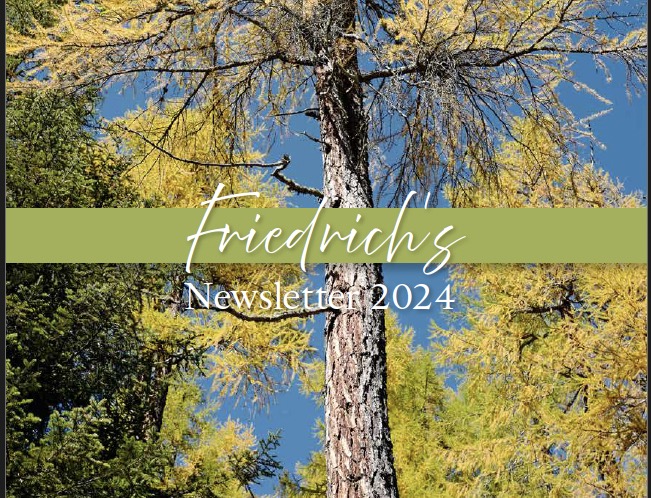
by master | Nov 14, 2024 | News, The Blog
Dear Friends
I wonder if you know about the new book
published by Watkins titled How To Find
Peace. It’s an expanded and re-edited edition
of Social Responsibility, one of KFA’s
thematic study books. It begins with
Krishnamurti’s piercing 1985 speech at
the United Nations in New York, given as
part of the official observance of the UN’s
40th anniversary. (I attended the talk, and
remember being disappointed that the hall
wasn’t full.) Following this Introduction
are 10 sections, among them: What is
your responsibility to society? How does
the free mind live in this world? and The
intelligence that brings order and peace. This is an extract from the section
titled On War:
K: How war came into being
Question: All except a few do not want war, so why do they prepare for it?
Krishnamurti: War means destruction, killing and maiming one
another, with the noise, the brutality, the ugliness, the appalling misery
of pain.
Do you know how war has come into being?
Keep reading: ( download pdf )
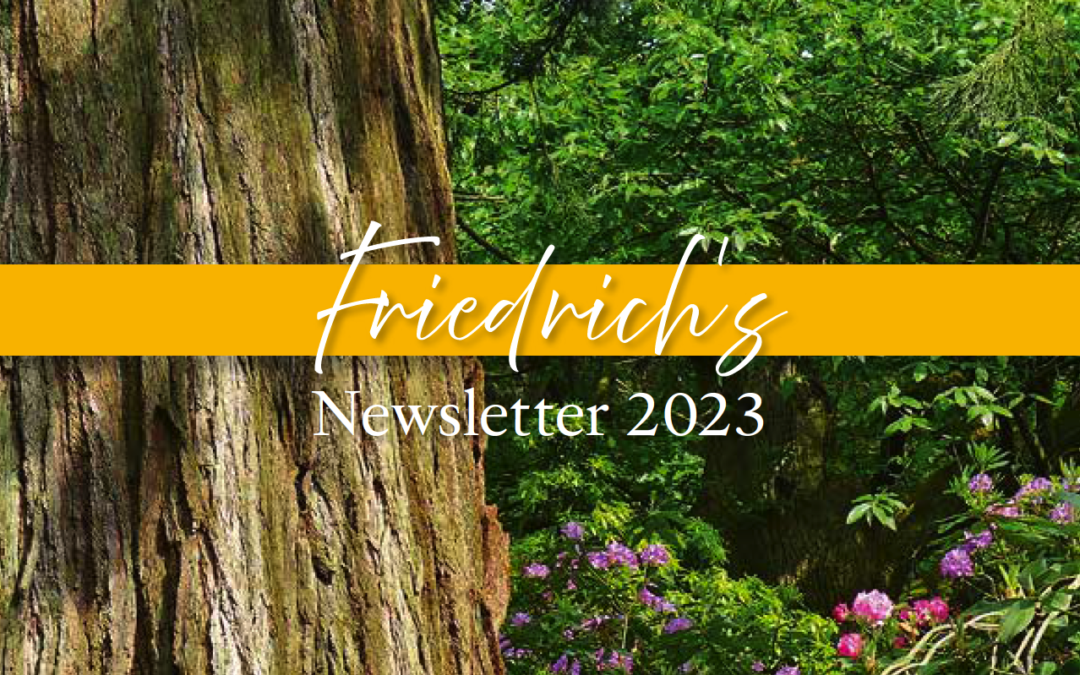
by master | Nov 5, 2023 | News, The Blog
Dear Friends
I was very interested to hear that the first Summer Gathering for decades
at Brockwood Park took place this past year, in August, with 120 participants.
Those who commented to me about it were very keen on it, especially
that the younger staff members took it in their stride to manage it,
and did so very well. The starting point was Krishnamurti’s 1976 public
talks and discussions at Brockwood. Many inquiring minds (or the general
human mind) made it serious and enjoyable, though with some typical
dialogue challenges. Amazing is that many young people, in addition
to the younger staff, eagerly arrived and participated. This shows further
promise for the future.
Keep reading: ( download pdf )
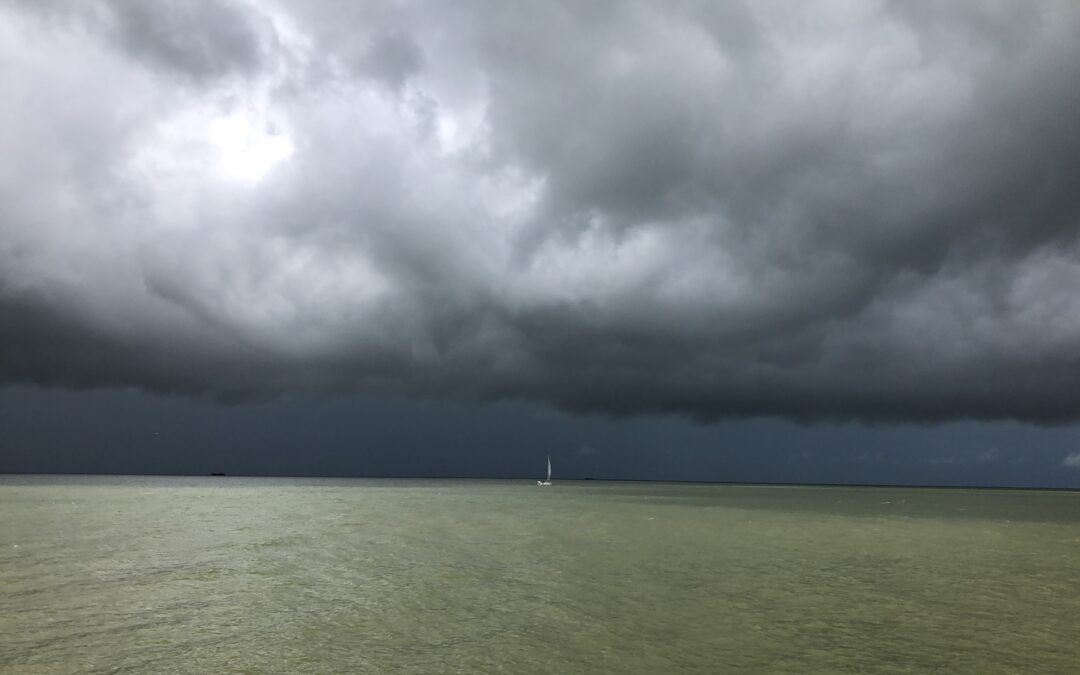
by Javier Gómez Rodríguez | May 9, 2022 | The Blog
Lelystad, 30 April 2022
“And you all know security
Is mortals’ chiefest enemy.”
Macbeth, Act III, Scene V, ln. 32
The witches in Shakespeare’s Macbeth knew a thing or two about human motivation. For the sake of security all kinds of crimes are committed, all kinds of battles are fought, all kinds of mischief take place among us mortals. One could say that history is the story of the conflicts and destruction perpetrated in the name of security. This is a total contradiction, awareness of which does not seem to have penetrated very deeply into human consciousness. That is the truth hidden in Hecate’s justly famous couplet, that in the pursuit of security human beings betray their own aims and thus become enemies both unto others and unto themselves.
Macbeth, the loyal and valiant vassal of the king, is hailed by the weird sisters with noble titles he does not yet possess. Victorious in some recent battles in the defence of the realm, he is still unaware of the rewards his liege has decreed for him. The witches, mistresses of the whispers of the air, and for whom fair is foul and foul is fair, know the future he still ignores. When soon after the royal harbingers confirm one of their predictions, Macbeth’s ambition is quick to seize on their further prophesy that he shall be king. This fires his imagination, and he shares the prospect with his wife, who seems more eager than he is to force the issue to secure the promised title. Together they plot to kill the king and, in spite of Macbeth’s moral scruples, they carry out the bloody deed. Macbeth avoids suspicion by blaming and executing the royal guards for the crime and is instantly rewarded with the crown.
The disguise of innocence can only go so far to hide the knowledge of guilt. The fear of losing what was so foully gained causes the new monarch to eliminate or injure those he suspects might rise against him and rob him of the throne. The ghost of the dead king appears and sits at the head of the table. It is all too real and evident to the conscience that projects it from its fresh and shocking memory. Every such crime is a split in the personality, not only outwardly in the pretences of society but inwardly in the darkling chambers of the self. The will to be, here translated as the lust for power, in its compelling urge to secure its object becomes the ground of a profound alienation. Lady Macbeth, whose ruthless determination pushed her wavering husband to commit the regicide, walks about in her sleep trying to wash the invisible blood stains from her hands, revealing, unbeknownst to her, their culpable actions. Her distraught state leads her to kill herself. Macbeth, urged on by the additional predictions of the infernal spirits the weird sisters conjure up for him, decides to battle it out to the end. Besieged on all sides and without the support of his dauntless wife, he is still infused with confidence because the threats named by the spirits sound improbable and absurd. Only too late does he realise that his hopes have deceived him into reading the equivocating oracles as seals of invulnerability, whereas they hid the instruments of his doom. The omens he had received bolstered security while undercutting it.
One has to wonder whether this pattern of Machiavellian ambition, triumph and despair might not be at work in the archetypal pursuit of power. What we see unfolding in Ukraine is something of a déjà vu. This has happened countless times before and is bound to happen again if we don’t go to the root of it. In this instance, it is perhaps all the more evident because this war is a naked display of wanton destruction. The reasons given are no reasons but the hallucinatory projections of sick minds whose control over the state propaganda apparatus is so complete that the vast majority are brainwashed and end up acquiescing in such barbaric acts. We might deplore such wanton massacres in the XXI century, but the historic evidence indicates that one century is as good as another when it comes to the ministers and minions of power carrying out their calculated atrocities in the pursuit of their delusions of grandeur.
It seems clear that the world of power politics is a deadly game played by heartless men. If conventional war were not proof enough of their madness, the threat to use nuclear weapons leaves no room for doubt. All nuclear arsenals must be destroyed and there must be an end to all war, not just the current ones in Ukraine and Yemen. This is not a matter of democracy vs. dictatorship but of the end of oppression and violence as practiced by anyone, under whatever banner. War is organised and legalised mass murder and all those who promote it are serial killers. But it is not only a question of pointing the finger at the obvious culprits, right, left and centre, communist or capitalist, religious or secular. They are all ruthlessly brutal in the pursuit of their own self-interests at the expense of the lives of others. They sit on the Security Council and thumb their noses at the UN. The guarantors of the international order use their veto power to place themselves above the law. This utter cynicism discredits them all. They forget that hubris brings down the wrath of the gods, sealing the tragic irony of our lives.
But we must beware of condemning in others, however deservedly, what we are guilty of ourselves. It is always salutary to remember that we are the world and therefore we must also look to the way we live, whether we are contributing or not to this same stream of selfishness, violence and sorrow. Human existence is the ebb and flow between the inner and the outer, with the psychological shaping the material structure of society. The atom bomb is the result of the most sophisticated science at the service of the most primitive tribal mentality. It is the extension of the good old club or bow and arrow. If we are identified with these tribes as the safeguards of our security, then we are responsible for war and its instruments. If we are the world, then peace begins with each one of us in our close relationships and in the very makeup of our characters, with their outlooks and values. Our egocentric materialism is destroying us. Our cult of success through acquisition and status is the way of competition and conflict. Peace will remain a hollow-sounding ideal if there is no compassion in us. Without it, these self-deluded fools in power will be the end of us and of all life as we know it.
Humility seems hard to find. The whole movement of achievement is to become something or someone through identification with the greater. That which we become is itself a projection or construct of thought, whether it takes the shape of nationalism, ideology or creed. And it is in this delusional structure of thought that mankind has sought fulfilment. After doing so for ages and paying a dreadful price, we are none the wiser. For those who pursue power are the incarnation of this endemic state of self-deception. All identity is its own violence. The good are free from such a structure of alienation. The wise wield no power. Power corrupts and absolute power corrupts absolutely. Such a foundation of society is inherently self-destructive, so there is no security in it. We need a new culture free from such endemic evils and their double-speak. If we want peace, we must be peaceful, free from the egotistic factors of division and conflict. The desire to secure the prize of his ambition landed Macbeth in the hopeless pit of despair, where time is a meaninglessness grind leading to dusty death and life a tale
“Told by an idiot, full of sound and fury,
Signifying nothing.” (Macbeth, Act V, Scene V, lines 19-28)
I suspect that if we saw the utter idiocy and senselessness of all this sound and fury, i.e., the truth of our own nothingness, we would stop all wars and create a completely new world.

by Javier Gómez Rodríguez | Dec 13, 2021 | The Blog
The world crisis[1]
The current state of the world is marked by a series of global challenges whose gravity turns them into veritable crises. These crises are not due to natural phenomena but are the direct result of human action. They are the outcome of our conflicted relationships with nature, with things, with each other and with ideas. We are collectively failing in our total responsibility for peace and cooperation among human beings and for the welfare and protection of the biosphere. The wave of destruction humanity has unleashed has reached such proportions that scientists are talking about a new age of extinctions which they’ve named the Anthropocene as it is human beings who are causing it.
Our knowledge has given us power and that power has been deployed at the service of self-interest. Our general materialist outlook and our near-total disregard for the whole and wholeness of life are ever being enhanced by our increasingly more sophisticated technical prowess. The predominance of social tribalism and psychological fragmentation continue to ensure that our human condition is plagued by the universal blights of violence and sorrow. These endemic core problems have ever stained the pages of history, which is the story of humanity, the chequered record of both our great achievements and of our inherited brutality. This deeper crisis has been with us from the beginning and no amount of scientific progress is going to resolve it, for it is the result of our profound lack of self-knowledge.
The need for transformation of our common consciousness
In this author’s perspective, Krishnamurti’s teachings offer one of the broadest and deepest diagnosis of the human condition that has ever come to light. In K’s own metaphor, they constitute a read- ing of the book of humanity, which is our common consciousness. This consciousness is the repository of our universal history and the very field of time which limits our intelligence and condemns us to a mechanistic and conflict-ridden way of life. Insight into and freedom from this limitation is therefore critical in the trans- formation of consciousness and the liberation of humanity from its enduring ills and tragic mode of existence. The very perception of this global predicament, that it affects all human beings every- where independently of race, class, culture, language, ideology and belief, places each of us at the centre of the challenge and makes us all equally responsible, for we are the world.
This is one of the most fundamental insights at the core of K’s teachings, and one whose profound relevance and utter urgency is daily demonstrated by the ongoing panorama of social injustice, ecological devastation and war. For K it was a law that where there is division there must be conflict. These divisions are the result of our identifications with nations, ethnic groups, traditions, etc., which then enter into a struggle for power and resources. These separate entities are invested with the fundamental values of our security, happiness and self-worth and become the very definition of what we are. But at their core lies a deep and dangerous confusion concerning being. The insight that we share a common consciousness and, therefore, that we are the world, is a denial of these seemingly entrenched separate realities. Consciousness is not yours or mine, just as the earth is not yours or mine. The perception of the falseness of these conceptual divisions is a fundamental first step in the healing of the traditional psychopathology of mankind and the establishing of a truly wholesome and responsible relationship with the whole.
Relationship is life, while thought breeds division and conflict
Relationship, K never tired of reiterating, is life, for nothing can exist in isolation. And yet we live in a world whose culture is characterised by an insistence on separateness as the very trade- mark of identity. This insistence on identity may have its primary source in our animal background and its instinctual territorial, sexual and hierarchical survival strategies. This is an instance of what K called the spilling over of the biological into the psychological. This conditioning becomes the primary drive of thought and blinds it to the broader implications of its own actions. Although we consider that thought represents the glory of man and the pinnacle of evolution, as long as it remains bound to this instinctual background it fails to respond to intelligence and compassion. So, the universal issue of division and conflict has a deeper cause in this biological conditioning that has become the nucleus of our individual and group psychology. And no amount of environmental manipulation will solve it for, as K often said, in human affairs the inner invariably overcomes the outer.
This is another profound insight that seems to be lost on most people and cultures. Most of us appear to put our faith in social reformation and structural change, to the neglect of the inner or psychological dimension, whereas it is in the latter that the key to harmonious relationship and creative order is to be found. We ignore a simple truth, namely, that the troubled reality we face is of our own making, that the world is what it is because thinking makes it so and unless there is an insight into the nature of thought, the world will carry on in the same old way regardless of our best intentions. That brings the whole question of transformation directly home and places it right at the centre of our very psyche and sense of self.
Knowledge and the illusion of the self
Although K was not systematic in his use of language, with regard to bringing about a radical transformation, words such as ‘knowledge’, ‘consciousness’, ‘thought’ and ‘self’ have a very specific weight. Knowledge, which in its scientific aspect has been regarded as the ladder in the cultural ascent of man—as opposed to his biological descent—is made to include not only the factual and useful information we need to operate objectively and sanely in all kinds of fields, but also the whole cultural tradition with its inherited patterns of conditioning. In this sense knowledge is also ignorance, for it includes prejudice, superstition and all manner of bias. Not only is such content problematic but, as the result of past experience, it is inherently limited, which naturally reduces its domain of applicability. The past is memory and memory, how- ever vast or ancient, does not encompass and can never encompass the present. It has its place in the management of recurrent features, without which knowledge, which is recognition, would not be possible, but its outlook must of necessity miss out the new, without which we can hardly be said to be alive and, therefore, in relationship.
This memory, experience and knowledge constitute the content of consciousness and thought is its response. From there K infers the inherent limitation and danger of thought as the dominant factor that it has become in human existence. Not only is thought, with its emotional component, seen to be reduced to a mechanical reflex process but the very notion of self, which traditionally has stood for the spiritual in us—the soul, the atman—is perceived as a projection from that very same material psychological back- ground, for its essence is the identification with the content of consciousness, however vulgar or refined. Without such content, the self has no substance, which means that it has no independent existence, for the self, the thinker, is the product of thought. This denial of the independent existence of the self is perhaps an even deeper insight, as it concerns the most fundamental and pervasive duality at the heart of the psychopathology of our everyday life.
The encompassing nature of the teachings is amazing. K considered that they covered the whole of life. They move seamlessly from the outer dimension of the vast scope of relationship to the inner workings of consciousness in a perceptive unfolding of the true nature of the human predicament and its needful liberation. The inner and the outer are a single movement, the ebb and flow of existence. The individual is the world and the world is but the workings of fragmented consciousness. The dissolution of the factors of fragmentation is what allows the so-called individual to become the link between the cosmic and the collective dimensions, thus generating a total and harmonious whole.
A vision of freedom and wholeness
But this grand vision of freedom and wholeness is characterised by the greatest simplicity and immediacy, for it is founded on pure perception. K called it the art of living, the ‘art’ being to put everything in its right place, therefore implying a quality of unfolding creative order in relationship. The problems of humanity are generated by the persistence of illusion in the way we see, think, feel and act. This illusion is brought about by the interference of the observer, i.e., by the time-bound projections of self-centred thought. What is required is a heightened form of sensitivity in which thought and time do not distort seeing. This sensitivity establishes the facts and permits an action that is free from conditioning. This is the proper meaning of responsibility. Thus, the pure aesthetics of perception becomes the free foundation of a truly ethical behaviour. Laying this ethical ground of order is seen by K as the necessary foundation for a deeper movement. This deeper movement he calls meditation, which involves the emptying of consciousness of its psychological or self-centred content. This is equivalent, in fact, to perhaps the deep- est insight of all, namely that psychologically we are nothing which, paradoxically, signals the emergence of being from the delusions of becoming.
The true meaning of religion
Mankind has lost itself in a labyrinth of its own making and its technical dominance and selfish ways is the greatest threat to its own survival as well as to the sustainability of life on the only living planet in the known universe. Krishnamurti’s insights into the nature of consciousness are fundamental in the understanding and ending of violence and sorrow, which are the core endemic problems facing humanity since time immemorial. This author cannot think of a more relevant and urgent endeavour than the unfolding of the liberating potential of self-knowledge that the teachings so sensitively and truthfully reflect. This potential is not merely a matter of bringing about a quality of moral integrity and the corresponding social and universal order, but of discovering the inward or spiritual dimension he called the religious mind.
Again, in K’s language words such as ‘meditation’, ‘wholeness’ and ‘religion’ acquire a profound significance. The word religion, particularly in the West, has practically lost its meaning in our time. And yet K’s teachings are essentially concerned, from beginning to end, with awakening the religious spirit. His approach to religion is perhaps the purest there has ever been, for it dissolves all sectarian identity, dogma, authority and practice. It is perhaps the most austere, for at its core lies his essential insight that truth is a pathless land. And yet K also makes it clear that without the total freedom of that timeless truth there cannot be a wholesome culture or a peaceful world.
For this author K’s teachings represent a deep mirroring of the human condition and the way of its liberation and wholeness. That’s why they deserve the greatest attention, not only within the K institutions but in the world at large. They were freely given out of a compassionate concern with the whole of life and that is what they stand for. Anyone equally concerned will find them to be the clearest expression of spiritual wisdom in our time and a veritable and universal education for mankind.
[1] This article was published in the Journal of the Krishnamurti Schools, Special Issue No. 25, on the occasion of the 125 years since Krishnamurti’s birth.
Photo: Cloud below Wilson Peak, Colorado (Fall 2021) — by Carl Marcus (www.carlmarc.us)
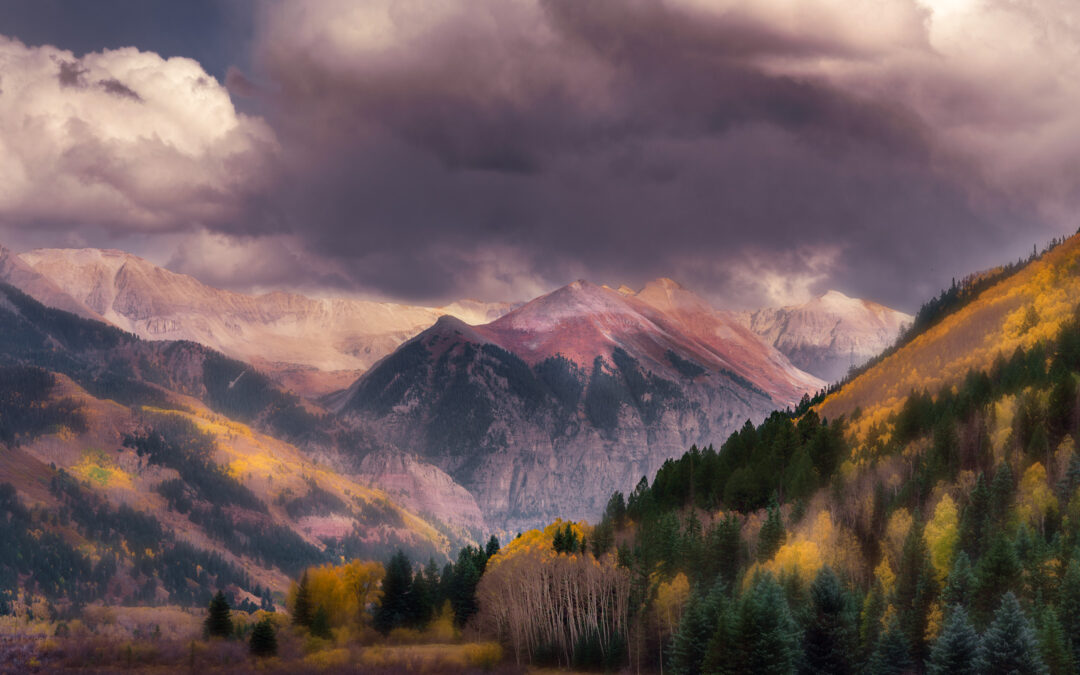
by Javier Gómez Rodríguez | Dec 13, 2021 | The Blog
Not a cloud in the sky, not a breath of wind, the sun pouring down relentlessly on the parched, cracked and barren land. There must have been clouds and rain to quench the thirsting ground, but so long ago not even the stones remember. There’s not a blade of grass or a shady tree. No sound of water. It must have filled the dry riverbed in days long forgotten, the bleached fish bones in the sand a reminder of the life that vanished with the limpid stream. Death covers the land except for the solitary wanderer. The path extends infinitely in the distance, rising ever so slightly. This road has existed for millennia, but it was made exclusively for him. He’s alone on the ashen road traversing the wasteland of his many lives.
Many a time he was a priest, but the rites yielded no blessing and the sacred books denied him their knowledge. He cried for divine guidance, but none came. No truth was revealed to him in his profound meditations. He sought solitude in the forest but found it peopled with miserable thoughts. He marveled at the beauty of the world but found no joy in it. He practiced yoga and self-mortification, annihilated desires and false emotions; he lived purely according to the sacred laws and did many noble deeds but found no true and lasting comfort. He helped, healed, guided and comforted others, when he himself was in need of help, healing and guidance.
Tired in body and soul of these religious practices, he threw himself on to the material world. He was young and healthy, beautiful and passionate. He set out to taste every experience the world had to offer, totally engrossed in the pursuit of pleasure. Born in the lap of luxury, his whims and desires were instantly satisfied. He also reincarnated as a woman, languishing in her love, joying in giving birth and sorrowing at losing a child. Having had the experience of womanhood, he returned to being a man bent on a life of self-indulgence.
Having enjoyed worldly wealth, he was born a beggar, living like an animal, always hungry and at the mercy of the elements. He wandered among the nations of the earth, miserable and shunned like a pestilence. Weary in body and soul, he sought seclusion, but misery was there too. Despairing of his existence, he continued to seek the same light which had been denied him in his former worldly lives of wealth and pleasure and in the life of religious austerity and self-abnegation. Despite the great variety of his experiences, thoughts and emotions, he remained without the light of truth and compassion, without the bliss of eternal happiness. Alone or with others, in pleasure and in pain, he always felt a deep void that nothing could fill.
The wanderer seeks pure enlightenment, deliverance from the wheel of birth and death, divine wisdom. But the path does not answer his desperate call and the heavens are indifferent to his plight. He sheds no tears but is crying with infinite pain. He is alone with himself; he is totally isolated and desperately lonely.The path no longer distinguishes right and wrong, true and false, the essential and the unessential, like it had done before. Now it is silent as the grave. It has shown him part of the way and the rest he must tread by himself. His longing is to find some cool shade where he can rest his weary body, but an irresistible force urges him on. Although weak and exhausted, he obeys. He takes a step and falls; he struggles and becomes unconscious. He desires to lie down, but that mighty force pushes him back on to his feet.
Then there is a solitary tree that welcomes him in its happy shade. Sleep and exhaustion overcome him, and he rests in complete oblivion of the ache of ages. But this tree of happiness is soon gone, and he is alone again. The path becomes steeper, narrower and more strenuous; it winds precipitously, leaving behind the country of the past, the land of desolation and unreality. There was a complete silence at that altitude. But his feet began to falter, and in his weariness, he longed for the shady tree of fleeting happiness. In the distance, he spies a clump of trees surrounding a house. He enjoys the coolness of the fragrant garden, is soothed by the pleasant voices of beautiful maiden and falls asleep to the soft sound of music. He dwelt in this abode of pleasure for ages and countless are the happy hours of forgetfulness he spent there. But the promised contentment is not within these walls. He has been deceived by unrealities, has feasted on untruth, been guided by false reason and worshipped in the temples of darkness. He has cheated himself with the impermanent. So, he must wander forth on the pitiless path.
He has travelled through countless ages and the path and the traveler are both crying for the end. The path leads on and he humbly follows. At irregular intervals there are delicious fruit trees, but he passes them by. Houses appear where the pilgrim had spent many a lifetime. He had lingered in the house of strong passions and selfish desires. He had entered the house of blissful ignorance, black hate and cunning deceit. He had fallen for the temptations of intolerance, patriotism and pride. He had also dwelt in the houses of jealous friendship and talented vice, of small wisdom and little learning. He had entered many a house of religion, sleeping in the lap of superstition, taking part in persecution and war. He had strayed into these dark mansions. But the path had welcomed him back every time, shame gnawing at his heart.
He’s weary and sick at heart after the great misery and pain of his many incarnations. His desire for the truth has been persistent and his enthusiasm indestructible. But despite all that aching sorrow and torture, the path traverses a vast expanse of illusions. He sees nothing but shifting and transient things, but now there is in him the assurance that the end of the journey is near.
Suddenly the air becomes still, breathless with expectation. Peace reigns and within him the pain is partly stilled. The path becomes much steeper and the ascent more difficult. As he reaches the summit, the enticing fantasies entirely vanish. There is a fresh energy born within him and he surges forward with renewed enthusiasm. He is in great ecstasy, for the dim light ahead has inspired a deep hope. He’s running forward, fearful lest the happy vision dissolve and elude him.
At last, the gracious gods have answered his pitiful calls. His sorrowful journey has come to an end. From this height he can see the travelers on all those paths bellow, struggling blindly in their ignorance, each proud in his foolish separateness and desperate loneliness. His heart is broken at the cruel sight of those weary and sorrowful travelers, for he cannot give them the divine water to quench their thirst. They must find the eternal source for themselves.
He has stood in the holy presence and seen its beauty. He is happy, peaceful and calm. The divine image is in his heart and compassion is burning in him. He shall humbly serve the world and bring peace into it. Wisdom guides him and peace enlightens him. Love has given him energy and its glory fills his entire being. He has seen and can never be blind. He can never go back to the barren and isolating mansions of experience, for all experience has come to an end. There is almost no trace of the past. He has seen the divine in all things. He is all things, all qualities. Divinity is within him.
Happy the man to whom it is given.
[1] This text is a free distillation of The Path (1924), which was Krishnamurti’s attempt at a poetic description of his awakening, whose painful and ecstatic onset came to be known as ‘the process’. In her book In the Presence of Krishnamurti (2018), pg. 580, Mary Zimbalist reports that K considered this early work of his worth reprinting.
Photo: Telluride Valley, Colorado, 2015 – Photo by Carl Marcus (www.carlmarc.us)
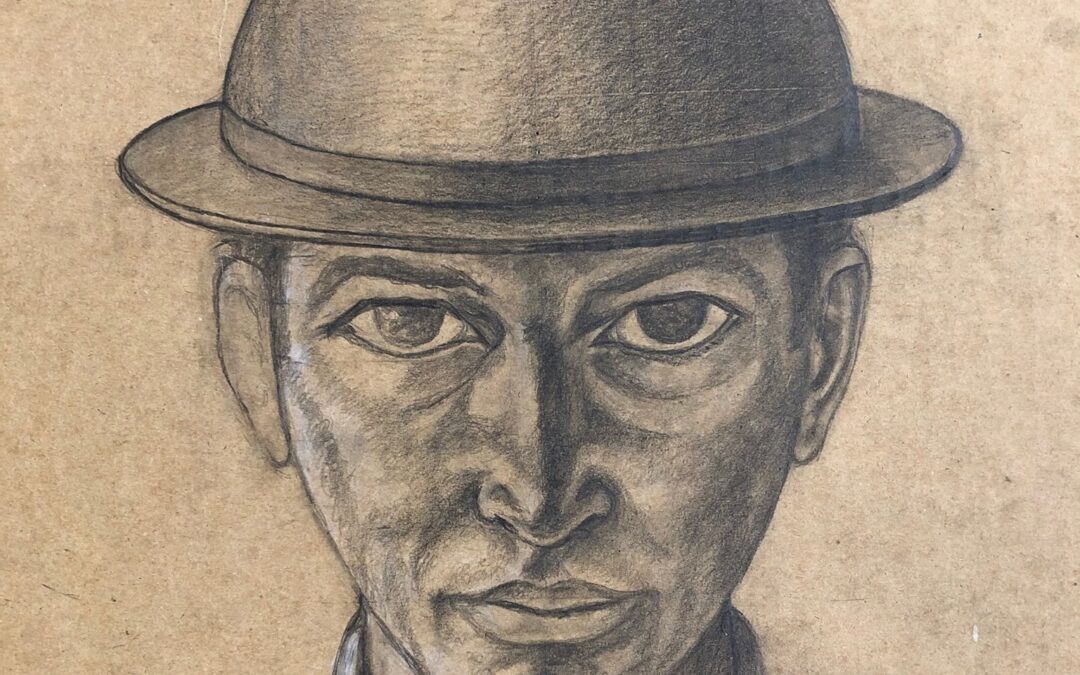
by master | May 23, 2021 | The Blog
I always found it rather intriguing that when it comes to honouring those fallen in battle, the leaders of the nations they supposedly died for invariably lay a wreath at the tomb of the unknown soldier.
More often than not, this unknown soldier is represented in a statue and the wreath is laid at the foot of the monument. These sculptures are not featureless, but they are not supposed to represent anyone with a birth and death certificate. It occurred to me that this could be a way of saying that in honouring no-one they were honouring every-one: the anonymous as the representative of the collective. And yet that unknown is still honoured not as all soldiers or all human beings who died without a name in the countless fields of battle but as the sacrificial victim of a particular tribe and its competing aspirations in the strategic geopolitical game of power. So the unknown is honoured not for itself but on account of its service to the known at the core of national identity.
These days, with every country in Western Europe tentatively coming out of lockdown, the usual celebrations of liberation, victory and surrender in remembrance of the end of WWII are rather tame affairs because the traditional crowds are forbidden. All those veterans will most likely still wear their medals and get emotional saluting the flag and watching documentaries on television about Winston Churchill, Dunkirk and D-Day. Strangely, nobody seems to say anything about the horrors of war, about it being an absolute abomination for which all peoples and countries on earth are responsible. On the contrary, it is the glory, guilt and shame that accrue to the various parties to the conflict that is being feted. And the whole patriotic spirit is being deliberately cultivated to boost national morale in the face of the current pandemic. As though we were at war with the virus and we needed the same kind of rallying cry about fighting it on the beaches. I
t feels so anachronistic to be feeding these nationalistic feelings at a time like this. The current situation exposes the total fallacy of such pomp and circumstance in the name of an honour denied by the very events that are being commemorated. The British might be celebrating their heroic endurance of the Blitz, their winning the Battle of Britain with their spitfires, their keeping a firm control of the seas in spite of the U-boats and having been the base for the invasion of Normandy. The Germans might be in mourning for their dreadful Nazi past, partly depressed by guilt and partly uplifted by the liberation that the fall of the Third Reich was for them also. But out of the total ruin that it left behind came the European federation project in order to eliminate the national divisions that had led to the two great wars and would lead to an unthinkably more devastating third unless something was done about it. But that wisdom, rather rare in politicians, seems to have been lost with the lotus-eating of prosperity and the forgetful passing of time, leading to Britain exiting the EU and retreating into good old parochial nationalism. The Germans at least reiterated their commitment to a unified and federal Europe in their speeches, something the Brits didn’t and could not do. The snippets of the Queen’s speech they reported on television were in keeping with that same parochial and insular mentality. It was ‘their’ dead, not ‘the’ dead of all nations, the anonymous humanity that keeps killing itself for absolutely nothing on the beaches of this world.
Needless to say, I’m deeply bothered by this total mindlessness of crown and pauper, of street urchin and civil servant, of pastor and sheep and the collusion of the media propaganda in support of a dangerous delusion. After all these thousands of years of interminable wars, we hold to their causes as the very pinnacle of our achievement and the chalky raft of our salvation. We still uphold such separate identities as the essence of our being and in their names we find the confirmation of our pride, profit and pleasure. So much so that we keep burning incense at their sacrificial altars forgetting that such violent offerings stink to heaven. The bloody red rose of nationalism by any other name would smell as sweet. So what are we actually celebrating? Is there anything to celebrate or should we be mourning our murderous history and making undying pledges against all war and, therefore, against the evils of nationalism? And right there is the rub, for only the very few will speak against the latter, which means the bulk of humanity accepts violence as the engine of progress, as the way of life.
Here in The Netherlands they put a nice little spin on their Liberation Day, i.e. the day when the Nazis retreated for good on May 5th, 1945. They do the typical thing of showing the documentaries of the invasion, the ruin, the resistance, Anne Frank and the final collapse of Hitler, but they place the emphasis on freedom, not just from the Germans but as a good in itself. So that it becomes a celebration of peace and cooperation. It is in freedom that we can live and prosper. It is through cooperation that we cement the peace that Western Europe has enjoyed for the last 75 years. It feels like an achievement but the fact that it does is itself a serious indictment of our barbaric past. I rather appreciate this more universal implication of this particular historical episode. For freedom, peace and cooperation are not for the Dutch only but for the Germans, the French, the Spanish, etc., for the whole of mankind. So that such celebrations become a pledge not to the nation and its murderous consequences but to the total welfare of humanity.
So here I am with Emmanuel Macron as he lays a wreath of red roses at the tomb of the unknown soldier, with the indelible image of Parisian women kissing American soldiers in the romantic but now totally deserted background of memory. He seems to be emotionally in tune with the symbolic meaning of the sorrowful occasion. The bronze statue atop its plinth, still armed and in uniform, though dead, keeps marching on. Allons! Enfants de la patrie… etc. I’d rather see Rodin’s ‘Thinker’ sitting up there, his head heavy with reflection and his expressive muscular body naked as mankind should be when looking dispassionately at itself. And then I remember from my Art History that Rodin had designed ‘Le Penseur’ to preside over his ‘Gates of Hell’. I always wondered why he did that, for it implied a connection between Hell and thinking. But after a little meditation, it was not so difficult to see, for thought is responsible for a great deal of violence, torment and suffering.
It is the way we think that is responsible for nationalism and war. It is to the ways of thought we owe all these historical catastrophes. Laying a wreath at the tomb of the unknown soldier is a futile gesture unless it be accompanied by a change of thought, by a change of heart and direction.And that change has to begin by a questioning of our identity, by the realization that the particularising identifications with the aims and images of thought is a fundamental factor of division and conflict. By giving ourselves a tribal or confessional name and glorifying its symbols, on which we invest our happiness, security and worth, we divide humanity into all sorts of warring factions. Such identities will always necessitate violence to prove their greatness. But that’s the greatness of butchers, not of human beings. And that’s why the wise have maintained that greatness is anonymous, for peace is to the nameless, to those who are no-one and so every-one.
I wonder whether Angela and Emmanuel (one an ‘angel’ and the other ‘God with us’) might appreciate the fact that the unidentified soldier they are mourning is the nameless key to everlasting peace.
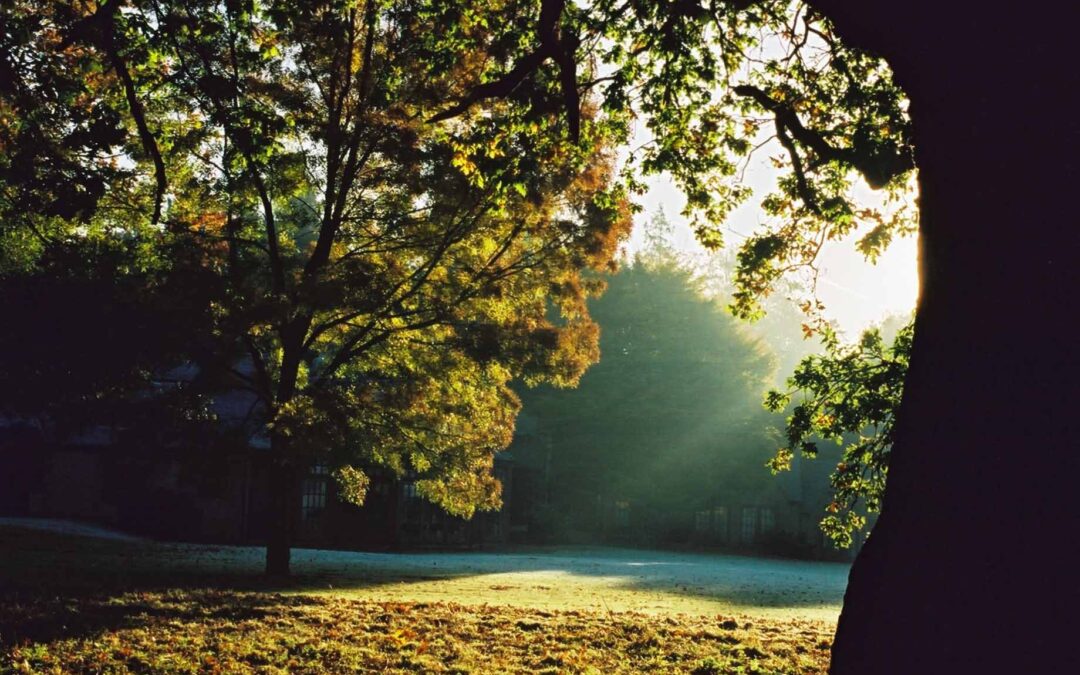
by master | May 23, 2021 | The Blog
Another sacred morning,
Another sacred day,
With widening horizons
And journeys without end.
Another sacred cycle
Of burning love and light,
Of providence in sparrows,
Compassion and delight.
Another sacred passage
Whose transience is the true,
Where death has no dominion
For everything is new.
Where beauty shines and sparkles
From raindrops on the leaves
That send their purest rainbows
To symbolise their peace.
Where lovers feel contented
With knowing they exist,
For they have gleaned in dreaming
What they know deep within.
Where work is its salvation
And knowledge serves the good,
Where kindness is redemption
And heals our hidden wounds.
The blooms of grass are waving
Their golden sacred plumes
In breezes slow and gentle
Against the growing gloom.
The sun pours down its blessing
And sanctifies the crowns
Where sea-born winds are playing
Their oceanic sounds.
The clouds themselves are drifting
In cotton puffs along
And green moss swells enchanted
Between the cobblestones.
You hear the children playing,
You hear the geese in flight
And cherish the contemplation
Of throbbing and timeless life.
The ivy keeps sending signals,
The brightness is its own joy
And beings don’t need a reason
For Being is what they know.
Creation has lost its distance,
The past has been wiped away
And time is a single instant
Whose measure knows no decay.
The clocks chime away the hours,
The news tell of gain and loss,
But mind is no longer streaming
The network of reflex thought.
The glee has become the insect
That dances in the sunbeam,
Like us who now brim with passion
At being with all that is.
The moss is now green and fluffy
Between the grey patio bricks
And shines with the grace of children
Whose laughter is in the trees.
There’s soughing among the branches,
There’s singing in the blue dome,
Where astral celestial choirs
Intone their light orisons.
All causes possess a meaning
And rivers must meet the sea,
There’s always some needful motive
To wind up our fantasy.
Except when there’s no division
Between beginning and end,
As in this bright sacred morning
Of purposeless innocence…
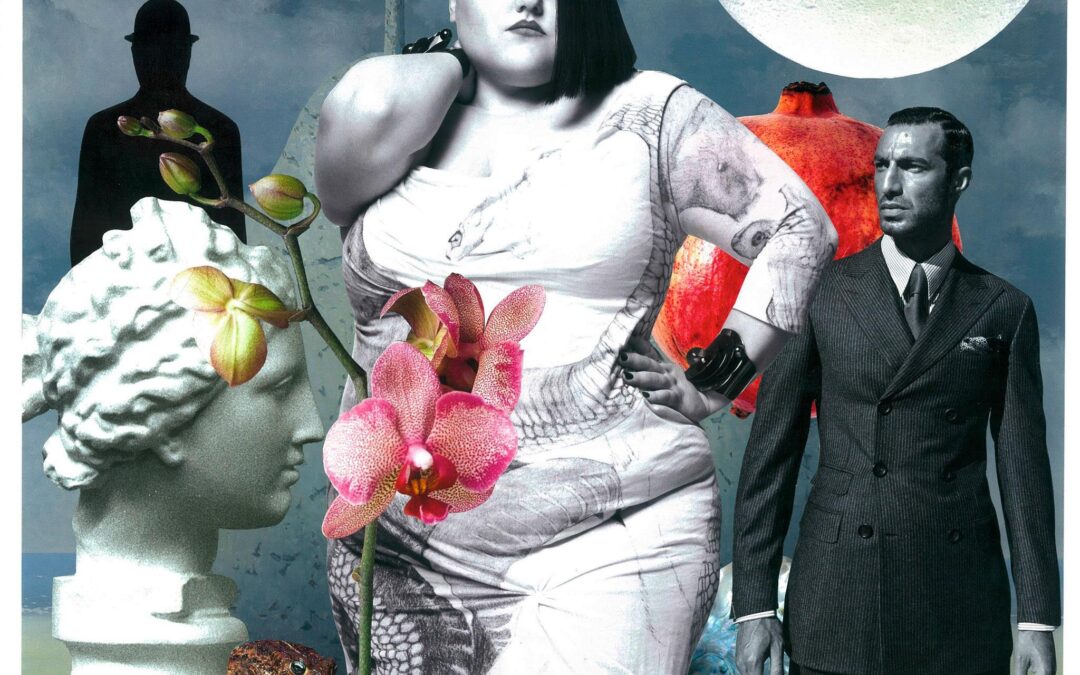
by master | May 23, 2021 | The Blog
This past Wednesday they celebrated Remembrance Day, or Poppy Day, in the UK. Wreaths had already been laid at the Cenotaph, the tomb of the unknown soldier, on Sunday. It was something of a tame affair on account of the coronavirus. Her Majesty the Queen was in attendance and seemed to experience a nervous twitch during the two minutes of silence they kept for the glorious dead. Later in the evening they showed Peter Jackson’s ‘They Shall not Grow Old’ (2018), a documentary about WWI. He dedicated it to his grandfather, who had fought in the Great War. My kids and I have admired Jackson’s dramatisation of Tolkien’s The Lord of the Rings and The Hobbit, so I was curious to see how he depicted this historic epic battle.
The documentary narrates the British experience of the conflict from the outbreak of hostilities to the Armistice. What we see is contemporary footage, first in black and white and then in colour, arranged in chronological order and overlaid with the oral accounts of the foot soldiers. There is no mention of the politics behind the whole thing, nor is there a single reference to the war poets. The point seems to have been to provide an account from the perspective of the rank and file. While this intra-historical narrative might be expected to depict the real suffering of the common man, it actually has the opposite effect, for the testimonies describe the gruesome reality as the most absolute commonplace. Not only that, but the survivors consider it the most glorious period in their lives. So, what might appear to be a nationalistic exultation of war, ends up revealing our terrifying ability to anesthetise and dehumanise ourselves.
Britain declared war on Germany on the morning of 4 August 1914. Everyone was swept along by a wave of patriotic euphoria. They all wanted to fight for their country. Britain had a huge empire and they were sure to defeat the weaker Germans. Although they had to be between 19 and 35 years old to enlist, many lied about their age and kids as young as 15 ended up joining. They were excited and glad to leave their boring jobs. After a period of physical training and military discipline in preparation for the front lines, they were shipped off to France.
They sailed from Folkestone under beautiful weather. They advanced through towns in Belgium that had been reduced to a pile of rubble and through fields full of craters and trees blasted by shelling. They had to live in a maze of trenches designed to minimise the damage of bombardment. All they could see above the parapets was barbed wire and total devastation. They slept in dugouts and got their water from the craters, with dead bodies in them. There was a communal latrine and they had to wipe their bottoms with their hands. Sometimes the bench they sat on would collapse, plunging them into the cesspool.
They were infested with lice. They lived under constant shelling and with the ubiquitous stench of decaying corpses. But they got used to it. There were infestations of rats that came to feed on the dead. And there was the gas cloud creeping along the ground. It destroyed their lungs, left them blind. In the winter the trenches filled with water; they got gangrene from frostbite and their limbs had to be amputated. They had to lay down boards to cross the morass. If they fell off, they sank into the mud and died. But there was a lot of kindness and comradery among them. Occasionally the troops would be granted a week off and they made the best of it. They played games, gambled, drank, smoked and went to the brothels. It was fun being in the war to end all wars.
Then, on another beautiful day, there was to be a major offensive. One thousand guns were firing over their heads and this bombardment created a collective hysteria. They launched 320 tanks. They were ordered to fix their bayonets and attack, the officers threatening to shoot anyone who retreated. The first wave was mowed down by the German machine guns. The second wave advanced over the dead and wounded. But they could not break through the enemy lines. After that carnage the jolly war lost its romantic aura. They became killers. They attacked the Germans, raided their trenches and cut their throats. Sometimes they killed their own wounded to put them out of their misery. The wounded kept arriving in droves. The dead, many just kids of 17 or 18, were buried unceremoniously in mass graves. The German prisoners were good, decent people; they mixed well with the Brits and bore them no malice. The Brits, however, robbed the Germans of their valuables.
They all agreed war was foolish and wondered why it had to happen. Though brave and stubborn, the German troops were fed up with the war; they just wanted it to end. And it did on 11 November 1918. All fighting stopped and there was a deafening silence. It was eerie. Nobody said a word. They were too exhausted to celebrate. The Armistice was one of the flattest moments of their lives: they were being laid off. And what were they going to do next?
They were shipped back to Folkestone. On arrival, they were welcomed with a sausage, a bun and a cup of tea. There was mass unemployment and not much of a life back home. The servicemen were actually discriminated against when applying for a job. People never talked about the war; they were not interested. The veterans felt like a race apart from the civilians. The latter had no idea of what war was like. Some of the soldiers felt war was horrible and everything should be done to avoid it. But others felt war had turned them into men. They were doing their job and learning to take care of themselves. They were elated because surviving that meant you could survive anything. They had no regrets, and they would gladly do it again.
It is quite extraordinary that after the unspeakable savagery of war anyone would want to do it again. But they had all gotten used to it and as every day was a matter of survival, the very excitement totally inured them to the real tragedy of the situation. They were driven by patriotism to sacrifice their lives. Rupert Brooke (1887-1915), himself a victim of the war, expressed this patriotic sentiment in ‘The Soldier’:
‘If I should die, think only this of me:
That there’s some corner of a foreign field
That is for ever England. There shall be
In that rich earth a richer dust concealed…”
His identification with England is so complete that not even his richer dust will lose the name and separate identity for which he lived and died. Wilfred Owen (1893-1918), another war casualty, however, advised such a patriot about what he would do if he had seen the horrors of war:
“My friend, you would not tell with such high zest
To children ardent for some desperate glory,
The old Lie: Dulce et decorum est
Pro patria mori.”
Poppies stand for the fields of Flanders and they are worn in remembrance of those whose lives were cut down there in the flower of youth. But they also stand for self-forgetfulness and an escape from reality. What the memory serves is to sustain the glorious lie of patriotism. So maybe it is time to take the patriotism out of such remembrances lest the poppies become once again the dangerously delusional opium of the people.












